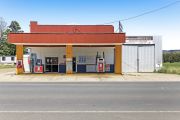
Abandoned Korean highway transformed into plant-covered walkway
An abandoned highway in Seoul has now become a ‘skygarden’ for plants and pedestrians.
The Seoullo 7017 Skygarden opened in the South Korean capital last month in light of the city mayor’s ambition to become one of the most eco-friendly cities in the world.
The 983-metre highway overpass was built in 1970 and closed in 2009 after it was deemed no longer safe for heavy vehicles.
In 2015 Dutch firm MVRDV were chosen to undertake the $67m project and at the time they said they hoped to inspire a process of change for the entire neighbourhood.
Around 24,000 plants have been installed on the 16-metre-high steel and concrete structure, arranged in alphabetical order to educate visitors on Korean plants and shrubs.
The skygarden is expected to become even greener with time as plants reach their full height and some trees are being reared for replanting in nearby districts.
At night the walkway is lit up blue and the colour can be changed during festivals and city celebrations.
It also has a network of stairs and bridges connecting to hotels and stores in the area and small cafes and market stalls dot the walkway.
“The pedestrianised viaduct next to Seoul’s main station is the next step towards making the city and especially the central station district, greener, friendlier and more attractive, whilst connecting all patches of green in the wider area,” MVRDV said in a press release.
The Seoullo 7017 name means “Seoul Street” and the number 7017 reflects the overpass’s original construction year of 1970 and its re-opening as a park in 2017.
Comparisons have been drawn with New York’s High-Line or London’s failed Garden Bridge project.
In 2008 then Seoul mayor said the metropolis could become “a city within a park” and that he hoped it would be amongst the world’s most environmentally conscious.












